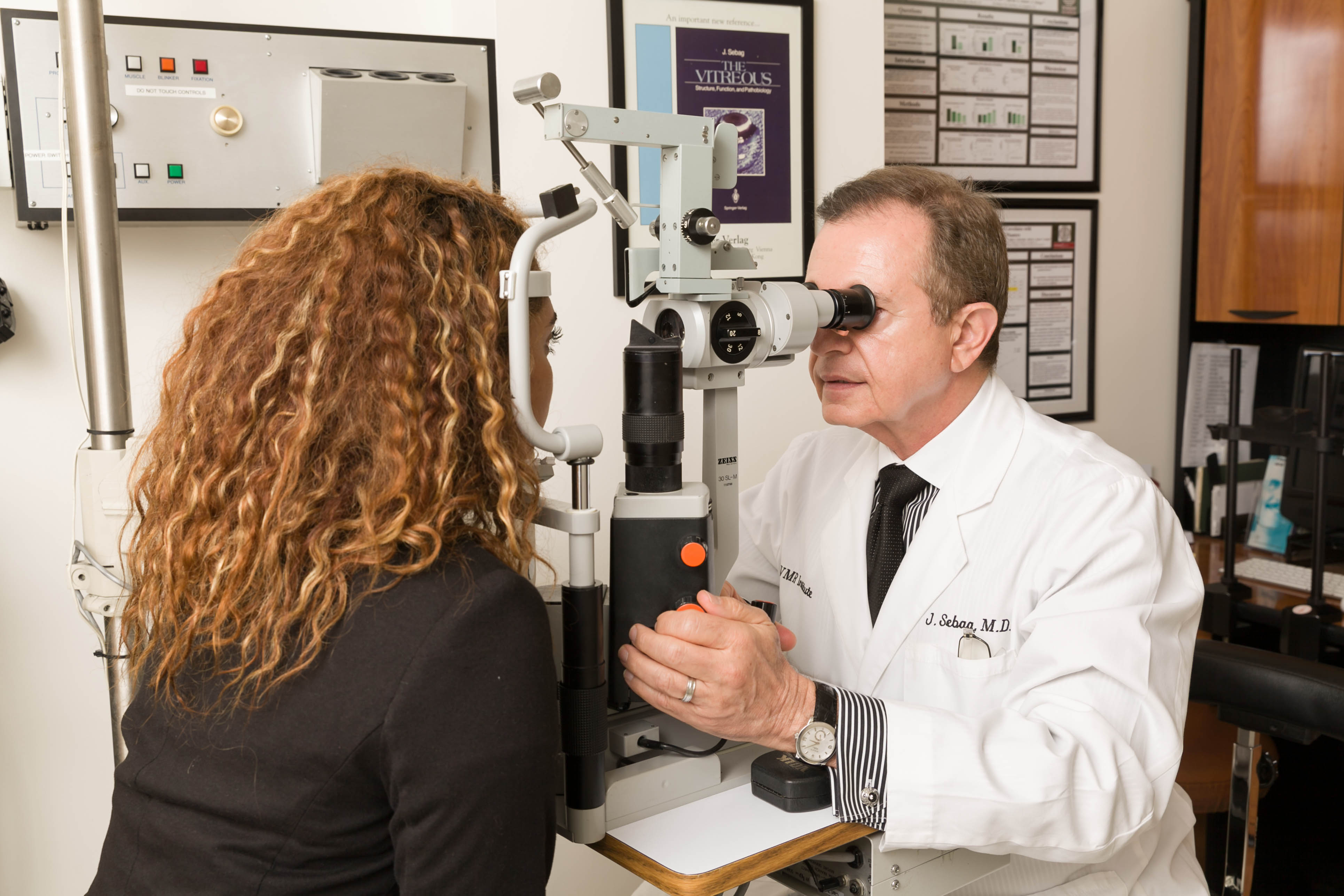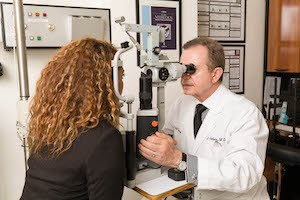
14 Jun How Doctors Are Treating Debilitating Eye Diseases
 As humans, we rely so heavily on our eyesight, which is what makes eye diseases like macular degeneration and conditions like retinal detachment and macular pucker so frightening. Below, you will learn about the modern techniques available to treat individuals suffering from these conditions.
As humans, we rely so heavily on our eyesight, which is what makes eye diseases like macular degeneration and conditions like retinal detachment and macular pucker so frightening. Below, you will learn about the modern techniques available to treat individuals suffering from these conditions.
How is retinal detachment treated?
A retinal detachment can occur at any age, but it is more common in people over 40. Fortunately, with modern therapy, over 90% of patients with retinal detachment can be successfully treated.
Vitrectomy surgery is the removal of the vitreous gel, or visco-elastic tissue, that fills the center of the eye. Removing this tissue gives your ophthalmologist better access to the back of the eye. Once it is removed, the surgeon can treat the retina, removing fibrous or scar tissue and repairing holes in the retina.
Immediately following the surgery, the surgeon will inject silicone oil or a gas bubble into the eye in order to keep the retina pressed against the eye’s wall. If silicone oil is used, you will need to have a second procedure to remove the oil after the retinal detachment is healed, because the body can’t absorb the oil. Vitrectomy surgery takes about two to three hours to complete and sometimes requires an overnight stay in the hospital.
How is macular degeneration treated?
Age-related Macular degeneration (AMD) is an eye condition affecting as many as 15 million Americans. The disease attacks the macula of the eye, which is where our sharpest central vision occurs. Sadly, AMD is the leading cause of irreversible vision loss in individuals aged 65 and older.
Wet macular degeneration treatment includes medications, such as Eylea, Lucentis, and Macugen. These medications help prevent the growth of leaky blood vessels in the eye. Laser photocoagulation destroys the leaky blood vessels that have developed underneath the macula. This therapy works for about 10% to 20% of people with wet macular degeneration; however, some vision loss can occur as the treatment creates scar tissue.
Unfortunately, there are no treatments available for sufferers of dry macular degeneration, which is the most common form of AMD.
If you or a loved one is suffering from severe vision loss, visit your eye doctor and discuss treatment options.

